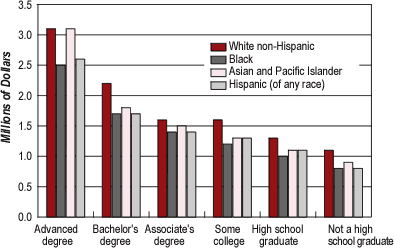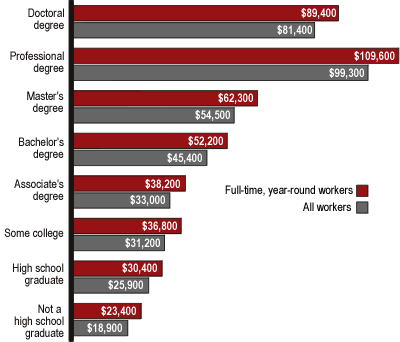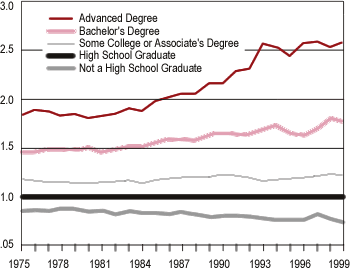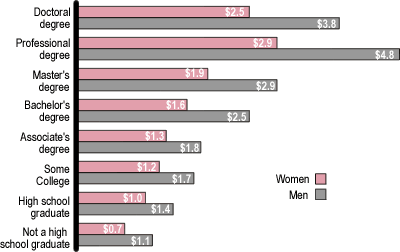Learn More, Earn More
Indiana Business Research Center, Kelley School of Business, Indiana University
Recent government studies based on national household surveys confirm what many of us already know or assume—the more you learn, the more you earn. But that's just a catchy way of saying that the more advanced the degree the greater the earnings potential. And while there are many reasons for young people to pursue further education after high school, the pursuit of economic success is one of the most obvious and measurable.
The report, The Big Payoff: Educational Attainment and Synthetic Estimates of Work-Life Earnings by the U.S. Census Bureau and released in June 2002, quantifies the economic value of college and advanced degrees for workers. It also shows that while there are differences—and sometimes very significant differences—in earnings based on gender and race, overall men and women prosper more with more education, as do African-Americans, Asians, and Hispanics or Latinos. The following graphs illustrate these points.
Figure 1
Average Annual Earnings by Educational Attainment: 1997-1999
Workers Age 25 to 64 (in 1999 dollars)
Figure 2
Average Earnings as a Proportion of High School Graduates' Earnings: 1997-1999
Figure 3
Synthetic Work-Life Earnings for Full-Time,
Year-Round Workers by Gender
In millions of dollars; based on 1997-1999 work experience
Figure 4
Synthetic Work-Life Earnings for Full-Time,
Year-Round Workers by Race
Based on 1997-1999 work experience

Endnotes
- Professional degrees are J.D., M.D., D.D.S. or D.V.M.
- For the full report, with details on methodology, go to the web at: www.census.gov/prod/2002pubs/p23-210.pdf.






